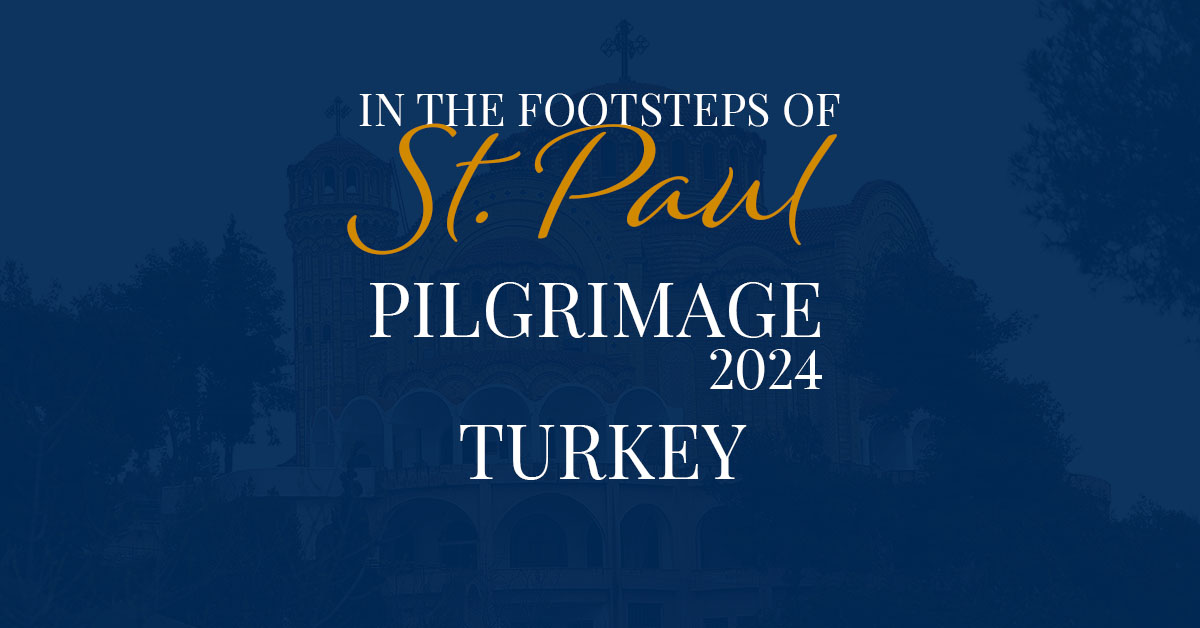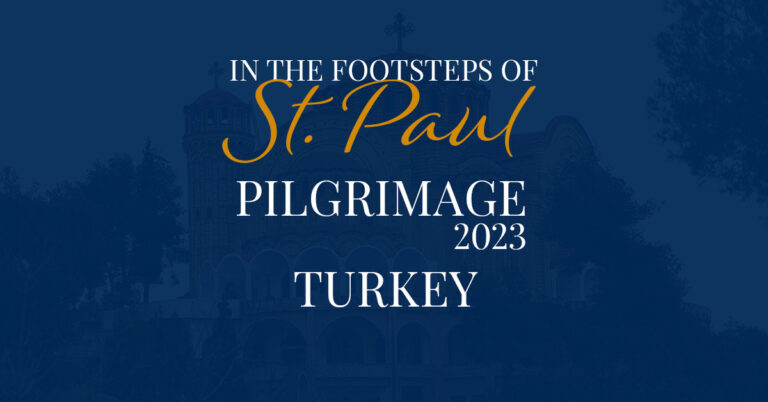Jumping forward in Time; Stepping Back into History
Eleven hours of flying took our group of pilgrims from the tarmac of O’Hare International Airport to the ancient streets of Istanbul, Turkey, but nearly a whole day slipped us by as we crossed the Western world and entered the cultural and spiritual milieu of the East. While Chicago is a historic city by American standards, Istanbul, or formerly Constantinople once held the title of Capital of the Roman Empire (~330 AD), the Byzantine Empire (330-1261), and the Ottoman Empire (1453-1922). Constantinople is similarly significant to Christianity; it was one of five Ecclesiastical Sees of the early Church, along with Rome, Alexandria, Antioch and Jerusalem, and was even called “Second Rome” It is the seat of the patriarch of Eastern Christianity, pretty neat in its own rite. However, our travel to this ancient city began as all good things should: with prayer and proper fuel for the journey.

For starters, we did not go hungry in transit. Our first official act as a group was a meal — in fact the most perfect meal: the Mass. Being filled with our Lord’s body as spiritual nourishment for the journey was reminiscent of the Israelites collecting their daily bread from heaven in the form of the manna (Exod 16) or Elijah being fed by angels for his journey to the mount of God (1 Kgs 19). This Eucharistic meal was followed by a quick dinner and bus ride to the airport where some last minute term papers were submitted as we awaited boarding. Once aboard our transatlantic flight, they served us yet another supper before the lights were dimmed for the night. Thus began the silence for more serious reflection on what lay ahead of us in the coming days and weeks.

In my mind, I mulled over two questions: why do Christians make pilgrimages and how do we pilgrimage well? I found myself thinking a lot about the topic of faith. Principally, are we going on pilgrimage so that in seeing these sites we may have faith, or going to these sites because we have faith? In reflecting on his own pilgrimage experience, St. Gregory of Nyssa, one of the Cappadocian Fathers whose lands we will have the privilege to visit, said, “Before we saw Bethlehem we knew His being made man by means of the Virgin; before we saw his Grave we believed in His Resurrection from the dead; apart from seeing the Mount of Olives, we confessed that His Ascension into heaven was real.” We aren’t going as archeologists, historians, or even scholars, but as pilgrims. Our faith is what inspires us to visit, venerate, and remember the events that took place at these sites. With this reality in mind, I certainly pray that this trip may deepen our faith, increase our hope, and foremost speed along our growth in charity through the many encounters we will have.
St. Gregory’s pilgrimage experience leaves much for us 21st century pilgrims to aspire to as he described, “Our wagon was, in fact, as good as a church or monastery to us, for all of us were singing psalms and fasting in the Lord during the whole journey.” Though not traveling by wagon, our paths are indeed already being sown with psalms, songs, and meditations on the scriptures as we journey through the airport atmosphere saturated with consumeristic and visual distractions. Our Holy Father, Pope Francis, has also offered us his own wisdom as we set off with his encouragement not to be mere tourists, but true pilgrims. He says, “Do not be like superficial sightseers, blind to the beauty around you, never discovering meaning of the roads you take, interested only in a few fleeting moments to capture in a selfie. Tourists do this. Pilgrims, on the other hand, immerse themselves fully in the places they encounter, listen to the message they communicate, and make them part of their quest for happiness and fulfilment.” Our pilgrimage is just as much an interior journey as it is external; thus, whether we are in an airport terminal, the house of Mary in Ephesus, or St. Peter’s Basilica, the opportunity is always before us for an encounter with God.
I’m reminded on this day of travel that life itself is a pilgrimage. We are all on a journey toward God, acknowledged or not. The blessing in my prayer this day has been a fresh recognition of that in every moment, the spirituality of a pilgrim is essentially one of hope and communion, and should influence my outlook on the inner significance of each encounter as a movement forward in our journey to heaven.
-JohnPaul Stedwill, Diocese of Peoria


